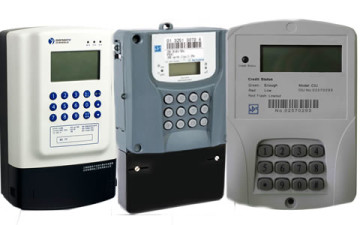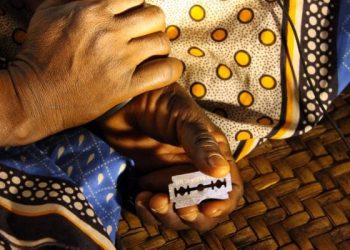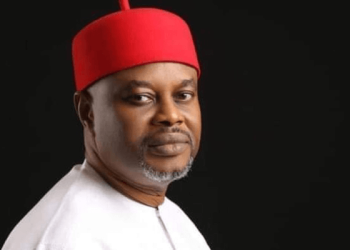With the deal that paved the way for the transfer of electricity generation and distribution from government control to core investors and new owners well into its second year, one thing that has become increasingly apparent is the fact that the current operators lack the capacity to meet the electricity supply needs of the country. Worse still, they are not only denying Nigerians and the larger economy the lifeline that comes with electricity supply but are also inflicting undue pains on them by their stubborn insistence on implementing arbitrary tariff policy.
This distressing development has been underscored by motley demonstrations across the country by electricity consumers, one of them led by the Edo State Governor, Adams Oshiomhole, against Discos’ bald-faced extortion. Consumers should not rest until their rights are guaranteed and protected.
Though the defunct power monopoly, the Power Holding Company of Nigeria, actually started the fraudulent practice, also known as Estimated Billing, the successor companies have somehow managed to surpass this dubious act of the former. This is a practice where attempts are never made to read meters, in places where meters do exist, but consumers are issued bills based purely on estimation. In many cases, the estimates do not in any way bear a reflection of the amount of power supplied. By so doing, consumers are forced to pay outrageously inflated electricity bills, whether there is any supply or not. This is depressing.
Also embedded in the dubious tariff policy is the Fixed Charges, another grand design to extort money from hapless consumers. In this case, a consumer is mandatorily required to pay a fixed monthly amount of money – between N800 and N750, depending on the distribution company concerned – whether that consumer makes use of electricity or not. It does not even matter whether the consumer is out of town and the apartment to which the bill is charged remains permanently under lock and key. These are unfair – or criminal – business practices that should be resisted.
The solution to this arbitrariness has been rightly located in the provision of consumers with pre-paid meters, to ensure an appropriate measurement of the quantity of electricity consumed and the tariff payable. Unfortunately, the consumers seem helpless in this situation. There is nobody to protect them against the Discos’ exploitative tendencies; not even the regulator, the National Electricity Regulatory Commission, under the leadership of Sam Amadi, has been able to rein in the rampaging Discos.
To reinforce their heartless practice, the Discos have defied all NERC’s directives on pre-paid meters. Just 50 per cent (in some states less than 30 per cent) of consumers are enjoying the service. This is simply outrageous. In Ikeja Disco where customers have been promised pre-paid meters if they are up to date with the payment of their bills, evidence abound of those who have paid but have not been provided with the meters.
For want of any other reason for this, many have come to the conclusion that estimated billing is a deliberate policy for quick financial returns without any commensurate improvement in the quality of service delivery. This position is even reinforced by the fact that there are many pre-paid meter manufacturing companies in Nigeria which are just waiting for the placement of orders to make the facility available.
When the privatisation deal was consummated with the transfer of ownership in November 2013, after a lengthy period of prevarication, it was welcomed as a development that was long overdue, given the ordeal Nigerians were made to face by the PHCN and its predecessor, the National Electric Power Authority. The then Vice President, Namadi Sambo, who was also the Chairman of the National Council on Privatisation, said, “The participation of the private sector will bring about more efficient and cost effective power supply, engender private sector investment, improve infrastructure and create employment for Nigerians.”
Indeed, to get the plants and offices running at the initial period, it was believed that the successor companies needed to invest about $3.5bn had the privatisation not gone awry. Unfortunately, it turned out that the firms went to some hurriedly-cobbled-together consortiums that lacked both the financial outlay to improve on what they bought and the technical know-how to run the business.
Having borrowed heavily from local banks for the purchase of the power firms, the beneficiaries of the fraudulent transactions have run out of potential creditors and are also facing the pressure to service their loans. Now, it is difficult to see how the current owners can attract the $10 billion which the International Monetary Fund says needs to be invested in the sector annually for efficient performance.
Little wonder that contrary to all known investment practices, the sham electricity companies expect immediate returns to continue in business and service bank loans. Electricity market is capital intensive and is never a place for dodgy firms. In the usual Nigerian way, corruption blinded the Bureau of Public Enterprises and the NCP into selling the state power utility to their cronies.
But the job of the BPE does not end with just “selling” the companies. Part of its responsibilities is “ensuring the success of privatisation and commercialisation exercise through effective post-transactional monitoring and evaluation.” BPE must do this. Since the investors have failed woefully to deliver on the mandate of the Federal Government, it is time to wield the big stick. President Muhammadu Buhari should order a thorough review of the process, especially the roles of NCP and BPE in frustrating the final phase of the Power Sector reform process, with a view to redeeming the privatisation programme.
Electricity consumers, too, should not be completely helpless. Since NERC, as a regulator, has failed to get the Discos to comply with the implementation of the pre-paid metering, they have to explore all legitimate channels to resist the fraud from the Discos. Through various residents associations, they can lawfully challenge the Discos’ criminal extortion that goes on in the name of electricity tariff.















































